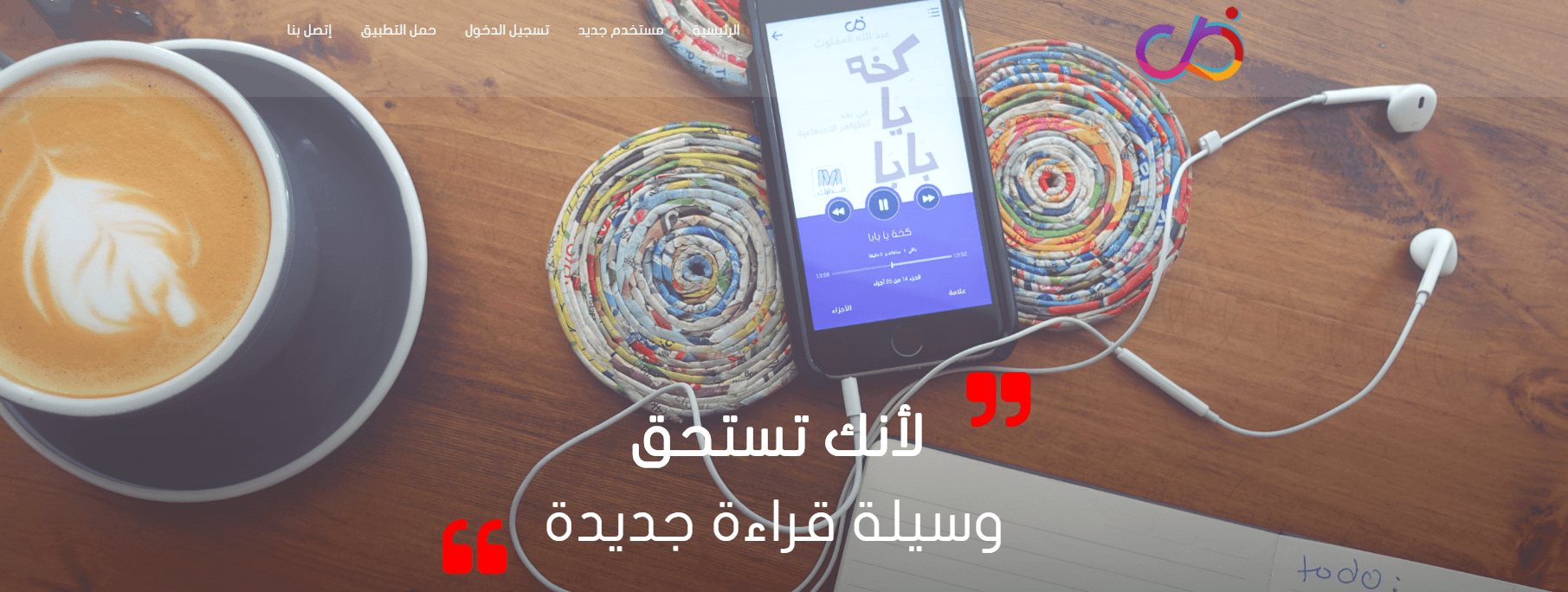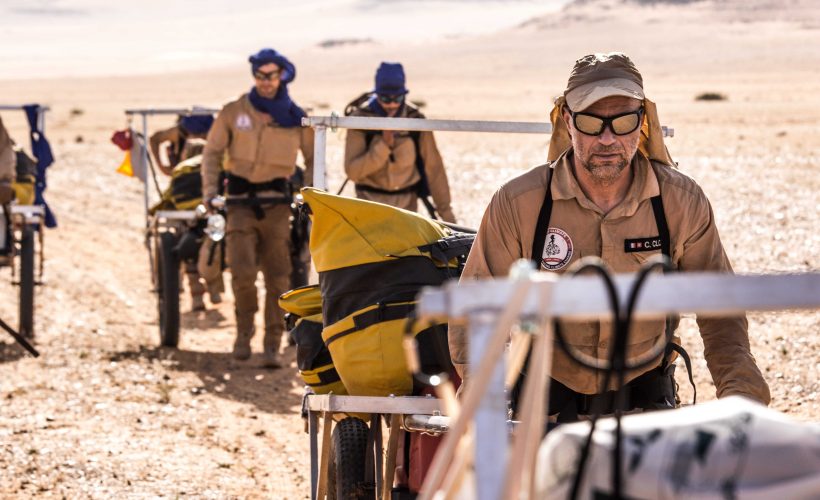Tech & Business
7.26.2018
Dhad, audio books to promote the Arabic language

Dhad Audiobooks was born four years ago from the outrage of a young Saudi woman facing the unavailability of books in Arabic. Her start-up has been designed to revolutionize the book industry and the way we read in the Arab world. Broadcasting audio practical and immersive content is a tool for her to promote her language and Arabic literature on an unequalled scale.
Manar Alomayri, a young Saudi entrepreneur, has come full of life and confidence at the latest Viva Tech Show to present her literary revolution, Dhad Audiobooks. The start-up she founded in Jeddah shapes since 2014 the future of the Arabic book industry. Her undeniable professionalism and seriousness couldn’t contain her overflowing and contagious enthusiasm that she uses to defend her cause in front of the camera.
To promote Arabic language and literature in the world
Manar Alomayri’s mission is to promote her mother tongue through literature. She claims her culture and means to spread it, through Dhad. That is the symbol of this struggle for the recognition of the Arab identity, which comes first and foremost by language. The start-up is actually the Arabic version of Audible, an American company created in 1995 and sold to Amazon in 2008. Like the download site, the young Saudi company is both a publishing house and an application providing audio books with educational, fictional or non-fictional content to listen to on all types of devices.

Manar Alomayri, overflowing with enthusiasm at the Viva Tech Show
To make books more accessible throughout the region
“The Arab world is actually known for not being the nation or population that actually reads the most. And that’s actually not because they are not interested in reading but because getting a book in the Arab world is really hard.”, said Manar with outrage and solemnity. “Public libraries are not very spread around the Arab world as well, even in Saudi Arabia”. Worse, she said it would be even impossible to find a book you want.
Indeed, very few books are printed, translated and published in Arabic, whether in the Middle East or in the rest of the world, where Arabic-speaking readers have become accustomed to reading in a foreign language. Today, of the 17 books read by the MENA population, on average per year, at least 6 are in foreign languages, according to a report of Knowledge4All.
A disruptive start-up to endorse the evolution of lifestyles
In addition to the difficulties to have access to books, traditional reading has become less and less compatible with our way of life. And asserting it is not something blasphemous. The moments of immobility, calm and idleness that it requires have almost disappeared from our modern lifestyles, where movement and incessant activity are preeminent. “The youth who are under 30 years old in the Arab world is increasing, especially in Saudi Arabia where they are more than 70 percent.They want something fast to complement their fast and busy lifestyle. And also they want something on the go”.
Therefore Manar completely rethought our way of reading. Her solution: enriched audio books. Dhad has, therefore, been thought as a hands-on, multi-device application, designed to deliver an immersive and interactive experience that captivates the listener’s attention without restricting his imagination. Dhad works very closely with well-known actors and personalities in the Middle East. Together, they work the voices down to the smallest detail to stay true to the temper and the universe of the book while generating the emulation of the listener.
An astonishing entrepreneurial lucidity
If today her success and satisfaction contaminate her honest smile, it is because Dhad humbly bided its time. In 2014, Manar and her team decided to arm themselves with patience and wait for the Saudi market to become mature before actually launching the app to the general public. At this time, people were very suspicious of e-commerce. The start-up thus took the opportunity to work on its BtoB partnerships, the first milestone of its success, while raising awareness of the audio book formats. Indeed, people were then reluctant to this new form of reading. “We faced people not accepting to listen to a book, because they think it’s not the same as reading a book”, Manar remembers.
In 2016, Manar knew it was the right moment. The market and the mentalities had evolved and people then understood that “it’s a book whether its audio or printed or an e-book, in the end it’s the same content, it’s the same thing but you just have another format another way of receiving this kind of content”. And she is right, the success is resounding, some books are bought more than 10,000 times, a figure never reached with printed books. This even rises to 200,000 downloads for some free books.
popular

